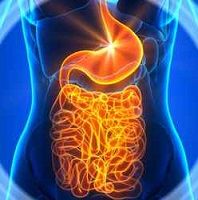Article
Gut Microbiota and Obesity Unrelated After All?
Author(s):
In a recent literature review, researchers from the University of Michigan pull the other side of the rope in the speculative tug-of-war over just what medical outcomes can and can't be attributed to gut microbiota.

There is not a clear connection between a gut microbiome dysfunction and obesity, according to a literature review published in the journal mBio.
Researchers from the University of Michigan Health Systems identified and analyzed 10 recent studies — encompassing more than 1,000 patients – that were conducted based on the idea that the gut microbiome influences obesity in order to investigate that hypothesis further. The previous studies purported the idea that the gut microbiome was responsible for obesity, the new study researchers explained, but their re-analysis changed the conversation.
Some of the studies were inherently flawed: Some of the studies were based on rodent study findings while others included just a few dozen human participants.
Using a classification model pooling from the existing data, the researchers found that the digestive systems of obese people and their microbiomes were unrelated to their obesity. The researchers could not find a clear common signature across any of the 10 studies linking gut microbiome dysfunction to obesity.
But, the researchers said, this lack of connection means there is more to learn about the gut microbiome in studies of obese and non obese people. They added that the findings can only grow as teams aim to explore more links and connections in the future. Plus, with obesity as widespread as it is, they said, it is even more important to find out the truth about the gut microbiome and obesity.
“Obesity is currently a health risk of epidemic proportions, and many have suggested that the bacterial microbiome is not only different between obese and non-obese but also can predict obesity,” research fellow Marc Sze, PhD, explained in a press release. “We wanted to see if this was really what the existing literature suggested, since these claims could have a lot of positive impact on the management of this epidemic if true.”
The team also wants to use a similar approach to explore the relationship between the microbiome and colorectal cancer. They believe their approach could become a new diagnostic tool to detect colon cancer or determine cancer risk using a stool sample.
“We also want to take the lessons that we earned from working with large data sets and apply them to our research on how the bacterial microbiome in families might have an impact on inherited colorectal cancers,” Sze concluded.
Related Coverage
Study Finds Gut Microbacteria Influences Obesity and Liver Disease





